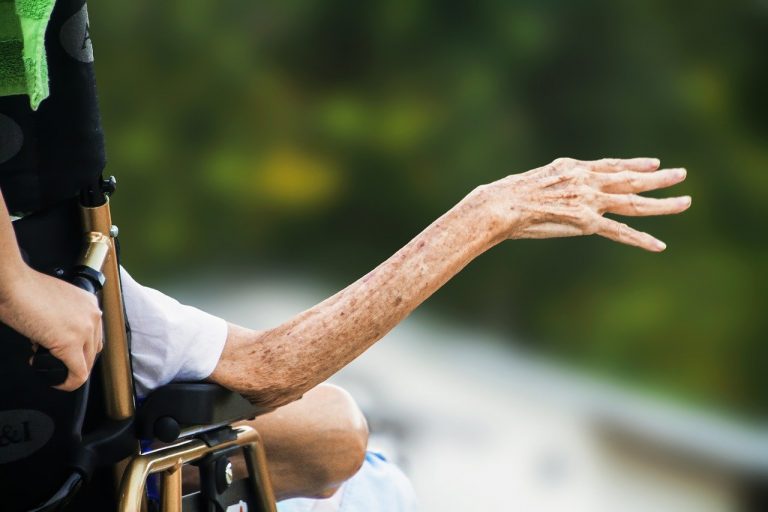What is STD?
Sexually transmitted diseases (STDs) are infections contracted via sexual activity. STD can also be referred to as STI (sexually transmitted infection) or VD (venereal disease).
A lot of people wonder if they can get an STD just from kissing someone. Most common STDs are passed on from one person to another through sexual activities such as unprotected vaginal, anal, and oral sex. However, there is a potential for transmission of some STDs through kissing.
Those STDs that can be contracted through kissing are usually those that the causative organism is viable in saliva and it can be passed on through saliva. Others that are transmitted through blood may also be transmitted via kissing if there is the presence of open wounds in both partners or where there is a bite in the cause of the kissing.
STDs can also be transmitted through intimate physical contact but this mode of transmission is not very common. Needle sharing and breastfeeding can also transmit STDs. For more information about the various STDs, check out the CDC’s website.
Symptoms of STDs are quite similar in presentation among individuals and may include pain or discomfort during urination, swollen testicles, rashes around the genitals, itchiness in or around the vagina, sores around the vagina, etc.
There are many types of STDs. Some of which are highlighted below;
Chlamydia
A type of STD is caused by bacteria (Chlamydia trachomatis). According to the Centers for Disease Control and Prevention (CDC), it is the most commonly reported STD amongst Americans.
In chlamydial infection, unlike gonorrhea, most men and women who are infected are asymptomatic. About 80% of infected individuals do not show symptoms.
However, the following may present; discomfort during sex or urination, gray or yellow discharge from the penis or vagina, pain in the lower abdomen, vaginal bleeding (spotting), etc.
Complicated chlamydia can lead to infertility, pelvic inflammatory disease, prostatitis amongst others.
Syphilis
Another type of STD is caused by bacteria infection (Treponema pallidum). This type of STD often goes unnoticed during its early stages.
If you are unfortunate and contract this disease, you can develop sores around your genitals, anus, and mouth. Joint pain, weight loss, fatigue, headaches, and rashes are also symptoms of syphilis.
This infection at late stages affects most essential organs in the body in the brain and the heart.
Untreated syphilis may result in heart disease and neurological problems.
HIV
Arguably the most popular type of STD, HIV is a viral infection that causes massive damage to your entire immune system. If left untreated, it can develop to stage 3 HIV or popularly referred to as AIDS.
Its early stages symptoms are very similar to that of the flu and one can easily mistake HIV for flu. Early symptoms of HIV include fever, chills, sore throat, headache, nausea, etc. There is no cure for HIV yet, but there are treatments available to manage it.
If treated properly, it can lower a person’s chances of transmitting HIV to another person as well as prevent mother-to-child transmission.
Gonorrhea
Another popular STD, gonorrhea is caused by bacteria infection (Neisseria gonorrhoeae). It is associated with pain during urination, genital discharges, pain during sex, lower abdominal pain, etc.
Untreated gonorrhea can cause infertility, pelvic inflammatory disease, prostatitis, itching around the genitals, etc.
This STD can also be passed onto a newborn during childbirth. When that happens, gonorrhea can cause serious health problems in the baby. That’s why many doctors encourage pregnant women to get tested and treated for potential STDs.
It’s curable if presented for checkups and treatment.
Herpes
Herpes simplex virus (HSV) commonly referred to as herpes is a type of STD caused by a virus. There are two main strains of the virus, HSV-1 and HSV-2. Both can be transmitted sexually.
HSV-1 primarily causes oral herpes, which is responsible for cold sores. However, HSV-1 can also be transmitted from one person’s mouth to another person’s genitals during oral sex. When this happens, HSV-1 can cause genital herpes.
HSV-2 is responsible for genital herpes. The most common symptom of herpes is blistery sores. In the case of genital herpes, these sores develop on or around the genitals.
In oral herpes, they develop on or around the mouth. Herpes sores generally crust over and heal within a few weeks. The first outbreak is usually the most painful. Outbreaks typically become less painful and frequent over time.
If a pregnant woman has herpes, she can potentially pass it to her fetus in the womb or to her newborn infant during childbirth. This so-called congenital herpes can be very dangerous to newborns. That’s why it’s beneficial for pregnant women to become aware of their HSV status.
There is no known cure for herpes yet.
For more facts about STD and the complications that may arise from them check this out: Sexually Transmitted Infections: What You Need To Know
There are many forms of STDs all over the world and one should take extra care when engaging in any sexual activity. You can protect yourself and your loved ones If you take extra care when it comes to STDs.
Regularly check yourself at the hospital for any STIs and abstain from illicit sex, use condoms and be faithful with your partner to protect yourself and others.
Can you get STD from kissing?
Not all forms of STDS are transmitted through kissing. Kissing is not considered to be a high-risk way of contracting STDs. However, there are some STDs that can be transmitted or passed from one person to another through kissing.
STDs that one can get from kissing include:
- herpes,
- cytomegalovirus (CMV),
- syphilis and
- HIV
How can Herpes be transmitted through Kissing
Herpes can be transmitted through skin-to-skin contact. This transmission is also made highly effective when there are cuts or sores present. As such, when the lips of two individuals touch during kissing, there is a likelihood of transmitting herpes from the infected person to the uninfected person.
Herpes can cause sores to develop around the mouth and genitals.
How can CMV be transmitted through kissing
Cytomegalovirus or CMV is mostly present in saliva. It can also be transmitted via breast milk, transplanted organs, and rarely, blood transfusions. This STD can infect the stomach and intestines. It can also cause fever and abdominal pain, blood in the stool, and inflammation of the colon.
How can HIV be transmitted through kissing
HIV as an STD is primarily transmitted through blood. As such, there is a possibility of transmitting HIV whenever there is a mix of blood between an infected person and an uninfected person.
As such, deep kissing between two individuals in whom one is infected increases the likelihood of transmission if there are open sores in the mouth of the other.
Another possibility is when the act of kissing between these two individuals results in bruises or biting of tongues.
If you have a cut or sore in the mouth, there is a chance of getting an STD infection (HIV) during open-mouthed kissing.
How can syphilis be transmitted through kissing
Syphilis can be transmitted through kissing. T. pallidum (a spirochaete bacterium) can breach mucous membranes through abrasion. Therefore, oral chancre can result from kissing with a syphilitic patient. Thus, kissing with a syphilis patient should also be avoided to prevent the infection.
Common STDs that are not known to be transmitted through Kissing
Chlamydia
This is a bacterial form of STD that is only spread through oral sex (not kissing), anal, or genital sex without barrier methods. The bacteria are not transmitted through saliva. Thus, one can get a chlamydial throat infection if one sucks an infected penis or ‘eats’ an infected vagina.
Gonorrhea
This type of STD is caused by bacteria and only passed through sexual activity and not from saliva from kissing.
Trichomoniasis
Another common STD is transmitted only through genital sexual activity.
How to prevent transmission of STDs through Kissing
One way to avoid getting an STD from kissing is to have a direct, transparent conversation about it with your partner. This can be very uncomfortable for both you and your partner but having this talk will enable you to set some boundaries. This can go a long way in preventing the transmission of STDs through kissing.
Abstain from any form of sexual activity when one is infected or going through treatment to prevent transmission and spread.
Be faithful to your partner. Avoid unnecessary or promiscuous kissing. Abstain from any sexual activity until marriage.







2 Comments